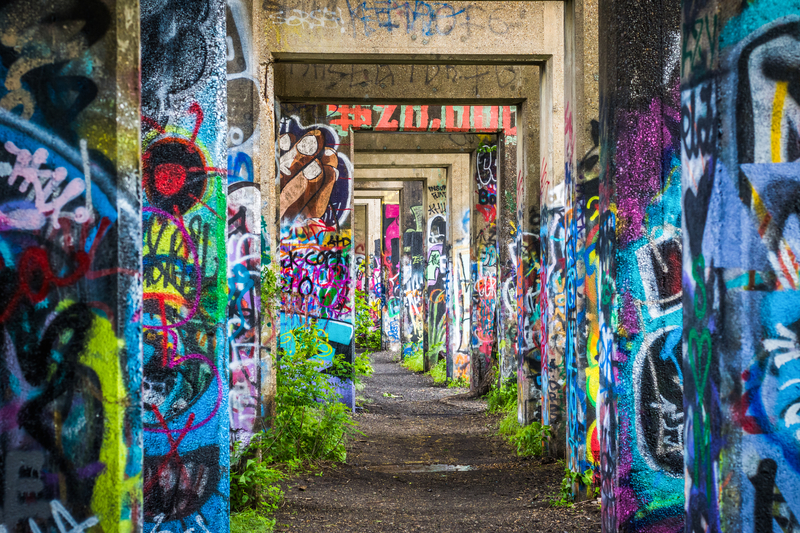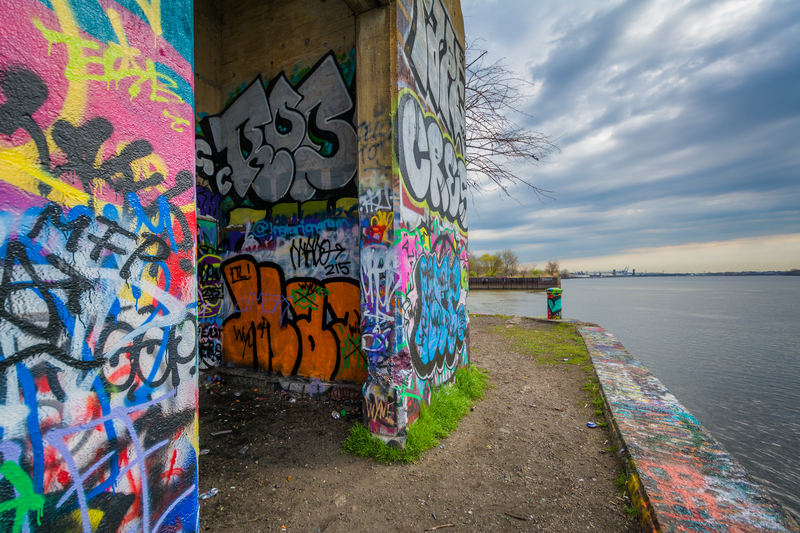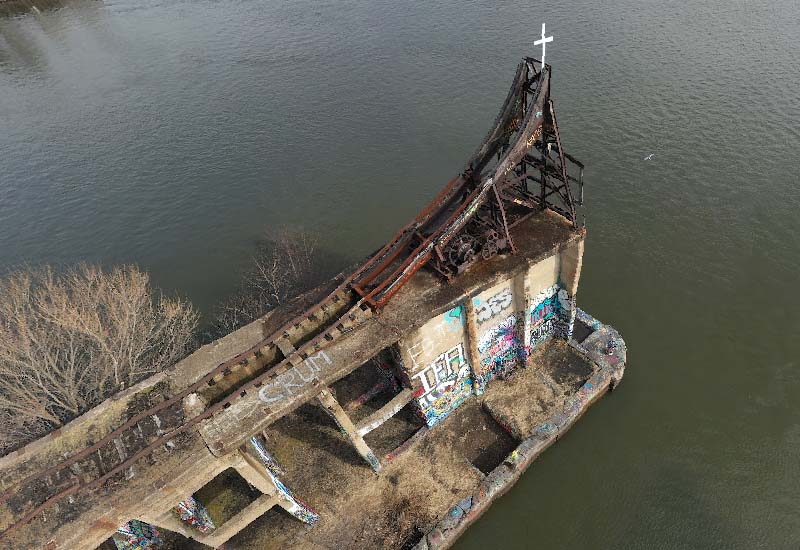PHILADELPHIA, PA – Graffiti Pier, also known as Pier 124, is more than just an abandoned concrete structure in Philadelphia; it’s a canvas that tells a rich tapestry of stories. Located along the Delaware River, this post-industrial area has evolved from a coal-loading pier to an unauthorized graffiti gallery. Over time, it has become a sanctuary for local artists and a cultural landmark, resonating with the eclectic spirit of the city.

Originally part of the Reading Railroad, Graffiti Pier was constructed in the early 20th century and used for coal shipments. After its decommissioning, the pier began its transformation into an artistic space. While officially closed to the public, its allure has only grown, drawing artists and photographers alike to document the ever-changing scenery.
From political statements to vibrant abstracts, the art at Graffiti Pier is both striking and diverse. Murals change almost daily, making each visit a unique experience. Not only does this open-air gallery provide a platform for emerging artists, but it also serves as a communal space where people can gather to appreciate the fusion of art and environment.

The pier’s unofficial status as a public space has led to legal complications. The property owners and city officials have been grappling with how to manage the site. Some proposals have included turning it into an official public park or art space. But for now, Graffiti Pier remains a hidden gem that stands as a testament to Philadelphia’s creative spirit.
Graffiti Pier captures the essence of urban culture, offering a snapshot of life, art, and social issues. It’s a must-visit location for anyone looking to delve deeper into Philadelphia’s dynamic artistic scene. While the future of the pier remains uncertain, its current form serves as a vibrant chronicle of the city’s creative pulse.
